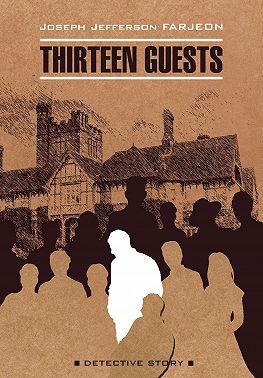- Главная
- Зарубежные детективы
- ⭐️Джозеф Джефферсон Фарджон
- 📚«Тринадцать гостей / Thirteen Guests»


Отсканируйте код для установки мобильного приложения MyBook
Премиум
Тринадцать гостей / Thirteen Guests
233 печатные страницы
Время чтения ≈ 6ч
2020 год
16+
Эта книга недоступна.
Узнать, почемуВозможно, не зря число тринадцать считается несчастливым. Лорд Эйвлинг устроил в своем загородном имении прием, пригласив на него именно такое число гостей. Увы, мероприятие завершилось трагично. В одной из комнат был обнаружен труп незнакомца. Кто этот человек? Почему он был убит? И главный вопрос: кто из присутствующих убийца – модная писательница, скандальный журналист, знаменитый художник, пожилой миллионер? Инспектору Кендаллу предстоит найти ответы на все вопросы…
В книге представлен полный неадаптированный текст произведения на языке оригинала.
В формате PDF A4 сохранен издательский макет книги.
читайте онлайн полную версию книги «Тринадцать гостей / Thirteen Guests» автора Джозеф Джефферсон Фарджон на сайте электронной библиотеки MyBook.ru. Скачивайте приложения для iOS или Android и читайте «Тринадцать гостей / Thirteen Guests» где угодно даже без интернета.
- Дата написания:
- 1 января 1938
- Объем:
- 419433
- Год издания:
- 2020
- Дата поступления:
- 15 апреля 2021
- ISBN (EAN):
- 9785992514957
- Время на чтение:
- 6 ч.
Поделиться
О проекте
О подписке
Другие проекты